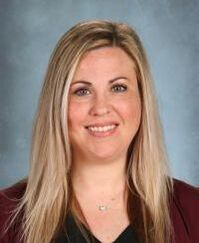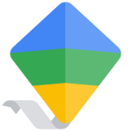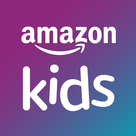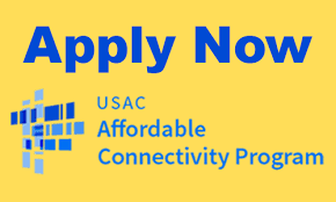TechnologyIt is our mission to inspire, facilitate, engage in, and advocate for a shared vision of purposeful change that utilizes the digital tools of our students' futures to achieve personalized student learning.
FOR STUDENTS
PARENTS & FAMILIES
Quick links
FAQsQ: How safe is my student while using technology at school?
A: State and federal laws are in place to protect minors while they use technology and specifically the internet at school. Our school complies with these laws through the use of web content filtering, email monitoring, and traceable, managed user accounts. Privacy and safety of our students is of the utmost importance to us, and we are taking every measure to ensure that our students are practicing safety in their online activities. Students and parents are also encouraged to read, understand, and review the district's Acceptable Use Policy, which is signed by parent(s)/guardian(s) at the beginning of each student's enrollment, and available upon request. Q: Does my internet at home have any filters like the school's does? A: No. Personal home or residential networks do not automatically come with these safeguards from your Internet Service Provider. It's important for parents/guardians to understand exactly what that their child(ren) can access at home. Typically, when at home, children have wide open, unrestricted access to the internet. Ask your internet service provider about this if you have questions, utilize parental controls when you can, and closely monitor your students' online activities. Digital Safety Resources for the Home Q: I want to get a computer for my student to use for school work and for personal use. What should I look for? A: Our district uses Google Workspace for Education, which is Google's suite of productivity and content management tools created specifically for schools. Keeping that in mind, Google makes very affordable "netbook" style laptops called Chromebooks. These are not only affordable, but are simple to operate, and they offer all of the tools our students need to use in B-PC schools. Chromebooks require no antivirus software/subscriptions, but they do require an internet connection. And best of all, they are incredibly share-able. If you have more than one child, or you want to use the device as well, each user's information and data is contained within their own user account. PCs (Windows) or Mac (Apple) brands are also perfectly fine, but can be significantly more expensive and a little more complicated to manage. They can handle more complex jobs and third-party software. For some unique situations, these might be preferred, but for most K-12 students, Chromebooks will work great. Learn more here. Q: How much screen time should my child have every day? A: Screen time for children is a controversial subject. The American Academy of Pediatrics suggests prohibiting all media/screen time until after a child is 2 years old. After that, parents/guardians can consider that benefits of screen time increase when children share that screen time with an adult, engaging in dialogue, and discussing what's being used/played/viewed. Each child and family is different, and ultimately the decision is a personal one. Check up above in the "Quick links" menu for resources for parents. FOR TEACHERS
STUDENT PRIVACY
The B-PC Schools IT Team is dedicated to protecting students' privacy and keeping them safe online in accordance with the latest version of the Student Online Personal Protection Act (SOPPA).
About SOPPAWhat is SOPPA?
The Student Online Personal Protection Act, or SOPPA, is a data privacy law that regulates student data collection and use by schools, the Illinois State Board of Education, and education technology (Ed Tech) vendors. What does it mean for you? As a parent or guardian, you will have greater control over your child’s personal information. In many cases, SOPPA gives parents the right to inspect, correct, or delete their child’s data, regardless of whether it is held by a school or a third-party Ed Tech vendor. Schools are also required to post on their web site the types of student data they share with Ed Tech vendors. What's next? We are developing supports for new requirements, protocols, and regulations. Information can always be found here, on our district website, and updates that impact families will be shared accordingly. Reach Lisa Webb, Technology Coordinator, with questions: Other LegislationChildren’s Online Privacy Protection Act (COPPA)
The primary goal of COPPA is to place parents in control over what information is collected from their children at school. COPPA was designed to protect children under age 13 while accounting for the dynamic nature of the Internet. It applies to operators of commercial websites and online services (including mobile apps) directed to children under 13 that collect, use, or disclose personal information from children, and operators of general audience websites or online services with actual knowledge that they are collecting, using, or disclosing personal information from children under 13. COPPA also applies to websites or online services that have actual knowledge that they are collecting personal information directly from users of another website or online service directed to children. Children’s Internet Protection Act (CIPA) CIPA was enacted by Congress in 2000 to address concerns about children’s access to obscene or harmful content over the Internet. CIPA imposes certain requirements on schools or libraries that receive discounts for Internet access or internal connections through the E-rate program. B-PC's Resources and Agreements
Students may not use B-PC accounts for personal use
The Parent-Student Handbook prohibits the use of a student's B-PC-issued Google account for activity outside of the apps/programs they are directed to use for and with their classroom teachers. B-PC Schools are not liable for such accounts or activities. ACCEPTABLE USE
Students who are enrolled in our district and permitted to use a district-issued device are held to certain standards of care. These standards are outlined in the Parent-Student Handbook along with a schedule of charges for neglect and/or damage. These guidelines pertain to students and devices whether they are school or home.
Students may not use B-PC accounts for personal use:
The Parent-Student Handbook prohibits the use of a student's B-PC-issued Google account for activity outside of the apps/programs they are directed to use for and with their classroom teachers. B-PC Schools are not liable for such accounts or activities. Get affordable internet at home
|










